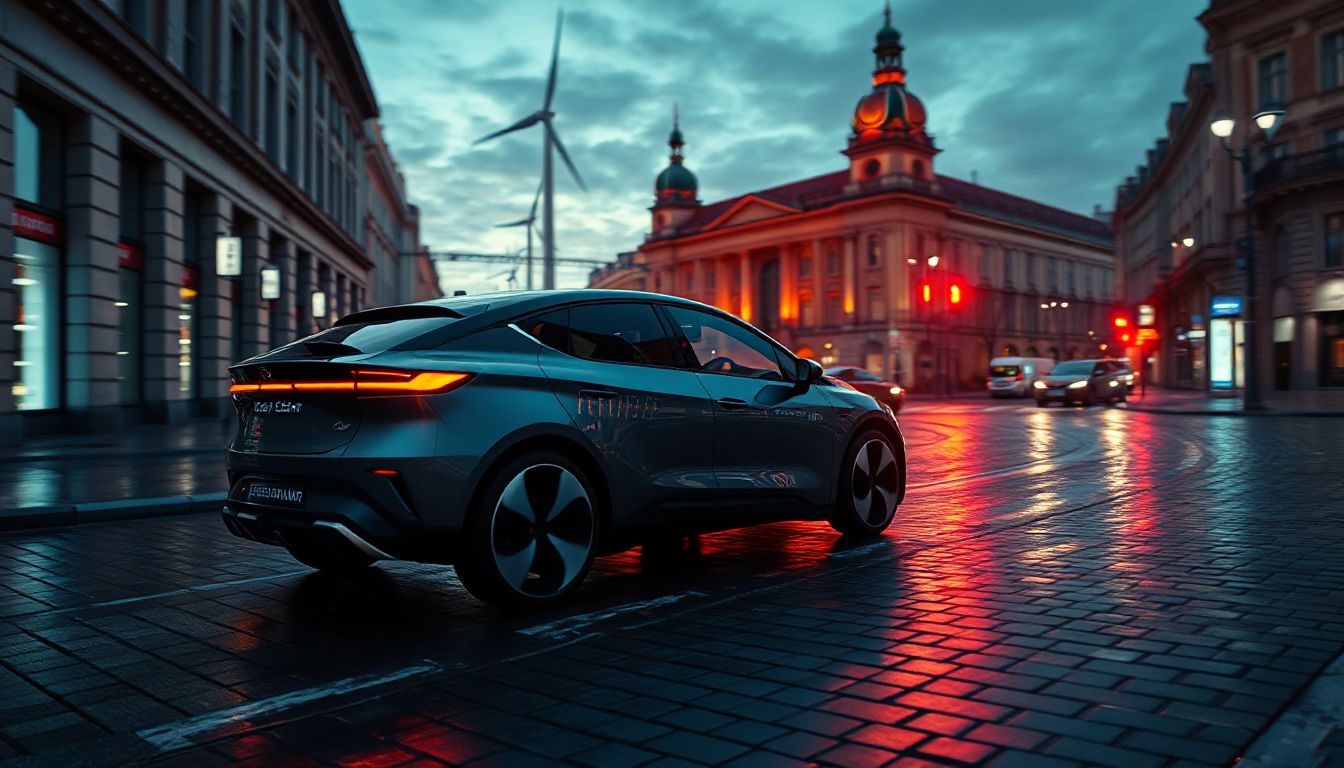Introduction
Germany has long been a leader in car manufacturing. Its cars are admired worldwide for quality and engineering. Now, the country is shifting gears toward electric cars. Governments and companies are investing heavily in electric vehicle (EV) technology. But what’s truly exciting is how artificial intelligence (AI) is shaping this transformation. AI is making EVs smarter, safer, and more efficient in ways we never imagined. Recent government plans and private investments are pushing Germany to the forefront of EV and AI development. This article explores how Germany is using AI to change electric cars forever.
The Rise of Electric Vehicles in Germany
Growing Market Trends and Consumer Adoption
Electric car sales in Germany are soaring. Last year, EV registrations increased by over 40%. Industry experts say this growth will continue. More Germans now prefer EVs because they are cheaper to run and better for the environment. Big car brands like Volkswagen, BMW, and Mercedes-Benz are leading the charge. These firms are rolling out more electric models each year. Consumer interest is rising thanks to improved battery range and lower prices.
Government Policies and Incentives
Government support makes buying EVs more attractive. Germany offers generous subsidies and tax breaks for electric car buyers. The government also has ambitious goals for 2030, aiming to have 7 to 10 million EVs on the road. EU rules add pressure for automakers to cut emissions fast. New regulations push companies to develop cleaner, smarter vehicles. These policies give a big push for EV adoption across Germany.
Infrastructure Development for Electric Vehicles
Electric car owners need places to charge. Germany is building thousands of fast-charging stations, both in cities and rural areas. These chargers are getting smarter with features like payment apps and remote monitoring. Utilities and local governments team up to make the grid ready for electric traffic. Better infrastructure removes worries about running out of power and encourages more people to switch to EVs.
The Role of AI in Shaping Electric Vehicle Innovation in Germany
AI-Driven Battery Technology and Management
Batteries are at the heart of every EV. AI helps make batteries safer, last longer, and work better. For example, Volkswagen uses AI to test and improve battery cells during manufacturing. AI algorithms predict how batteries degrade over time and suggest ways to extend their life. For car manufacturers, adopting AI in battery research speeds up innovation and reduces costs.
Autonomous Vehicles and Advanced Driver Assistance Systems (ADAS)
German automakers are testing self-driving cars powered by AI. AI enhances vehicle safety by offering features like automatic braking and lane keep assistance. These systems help drivers avoid accidents and navigate traffic more easily. Many believe autonomous EVs will become common in Germany soon. Experts see AI as the key to safer roads and smarter cars in the future.
Manufacturing Automation and Supply Chain Optimization
AI also impacts how cars are built. Factories in Germany now use AI robots to assemble vehicles faster and with fewer errors. AI predicts supply chain delays, so parts arrive on time. During the COVID-19 pandemic, AI helped factories stay efficient despite disruptions. This automation lets German firms stay competitive in a tough market.
AI in Customer Experience and Personalization
Once you buy an EV, AI can make your driving experience more personalized. Intelligent onboard systems learn your habits and suggest routes or music. AI also predicts when your car needs maintenance, preventing breakdowns. These smart features build a stronger bond between drivers and their vehicles, making every trip smoother and more enjoyable.
Challenges and Opportunities in Germany’s EV-AI Ecosystem
Technical and Regulatory Barriers
Developing AI for vehicles isn’t easy. Privacy is a concern, as cars collect lots of personal data. Cybersecurity risks also rise with smarter vehicles. EU rules make it harder to use certain AI techniques. Balancing innovation with safety will be a key challenge for Germany.
Investment and Talent Acquisition
Germany is investing heavily in EV and AI startups. Funding supports research labs and new companies. But there’s a shortage of AI talent. Germany is working to fill this gap with coding programs and university courses. Building a strong talent pool is crucial for future growth.
Collaborative Innovation and Public-Private Partnerships
Big companies, startups, and universities are teaming up for EV and AI projects. For instance, collaborations between BMW and AI startups are creating smarter driver-assistance features. These partnerships speed up innovation and open doors for new ideas. Opportunities are abundant for smaller firms to join in and contribute.
Real-World Examples of AI-Enhanced EVs in Germany
German car brands are rolling out models with AI features. Volkswagen’s ID series includes AI-powered driver assistance and smart charging. BMW uses AI to diagnose vehicle issues and personalize driver profiles. Mercedes-Benz is testing autonomous driving with AI, making their cars safer and more convenient. These innovations not only improve safety and comfort but also help reduce emissions and promote sustainability.
The Future Outlook: Germany’s Vision for AI-Enabled Electric Mobility
Looking ahead, AI will continue transforming EVs in Germany. Expect faster battery development, smarter autonomous systems, and more personalized features. The government plans to invest further in research hubs and international partnerships. Germany aims to lead Europe’s push toward cleaner, AI-powered transportation. By combining cutting-edge tech with strong policies, the country is shaping a future where electric mobility is smarter and greener.
Conclusion
Germany is positioned perfectly at the intersection of AI and electric vehicle innovation. The country’s big tech and auto companies are using AI to push the boundaries of what EVs can do. Challenges remain, like regulations and talent shortages, but the opportunities outweigh the hurdles. For manufacturers, policymakers, and consumers, embracing AI in electric cars offers a path to a safer, cleaner, and more efficient future. The journey has just begun — and it’s an exciting road ahead.




